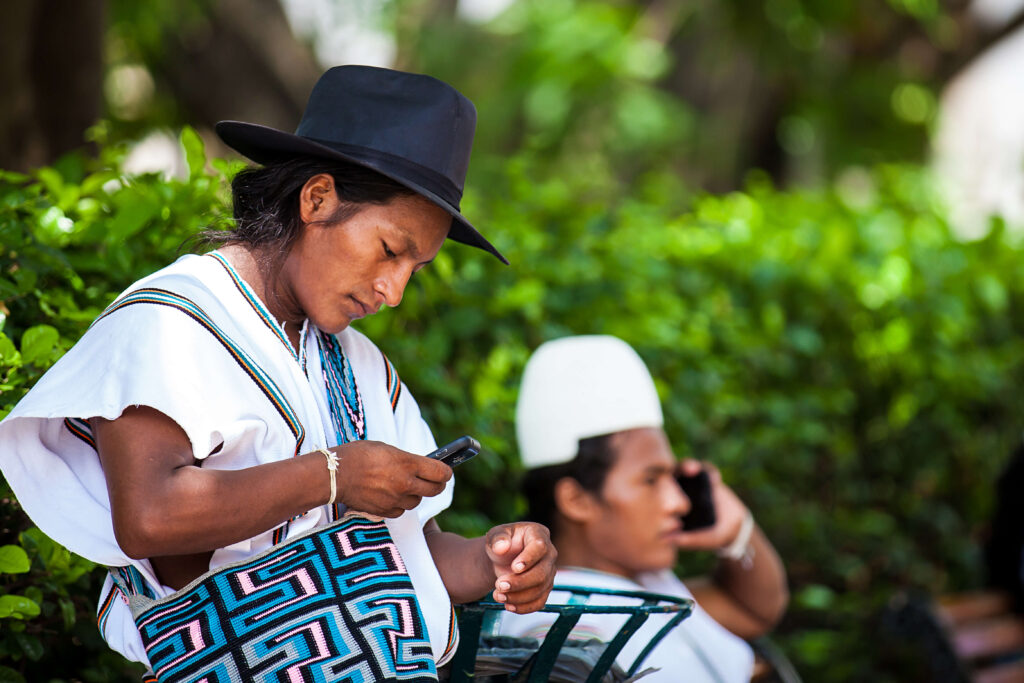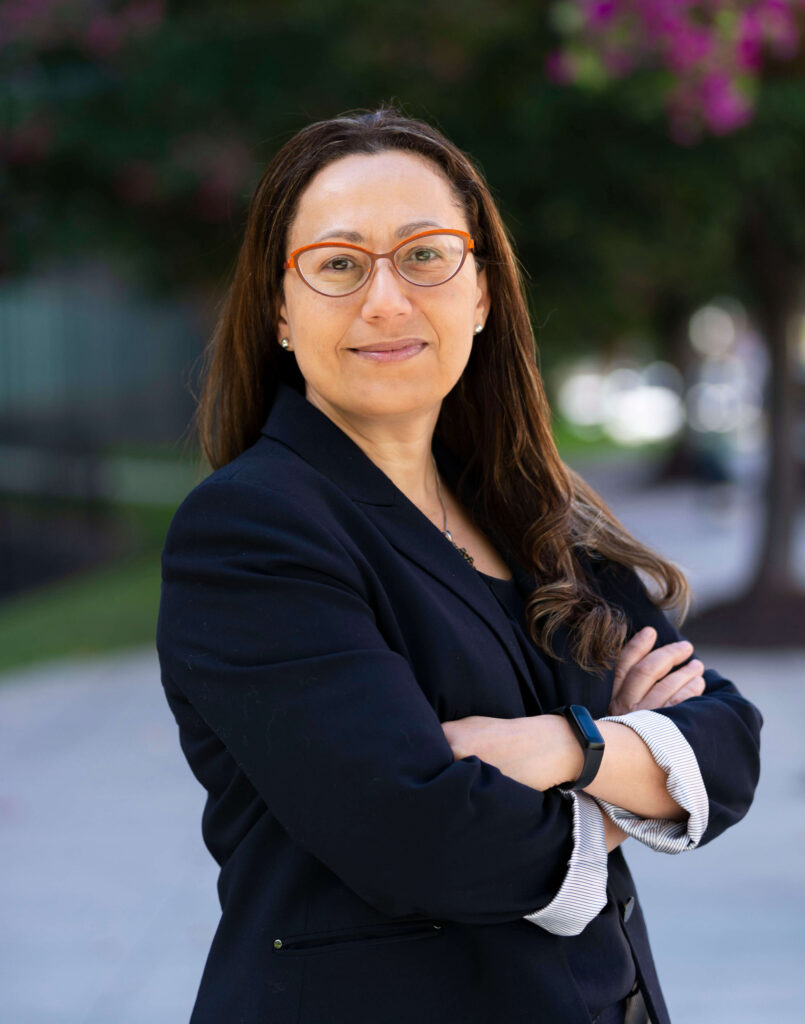
So much has happened in the last 12 months. It is hard to believe that this time last year, during Financial Inclusion Week 2021, we were imagining the end of the pandemic and a return to ‘normal.’ But of course, Omicron was just around the corner, and it came with a bang. Other variants followed and infection rates skyrocketed once again by May 2022. At the same time, by January, the pandemic was overshadowed by the war in Ukraine, which continues to have countless ripple effects on both developed and developing countries. Rising oil prices, disruptions in supply chains, increasing food prices, concerns about food insecurity, and of course inflation have been persistent themes across the airwaves and the headlines.
It’s hard to keep up with what feels like endless shocks to the global economy and people’s day-to-day lives.
And the backdrop to all of this has been the climate crisis and an endless series of natural disasters around the world. Floods in Pakistan have killed thousands and displaced 33 million people, so far covering one-third of the country. With record temperatures in Europe, North America, South Asia, and the Middle East, and another summer of fires in Brazil, India, Spain, Portugal, and many other countries, it’s hard to keep up with what feels like endless shocks to the global economy and people’s day-to-day lives.
Drivers of Volatility for Developing and Emerging Countries
While there is a temptation to shut off the news and search for a less turbulent life, it’s virtually impossible given the magnitude of change in our world. Instead, we need to build our resilience and learn to deal with volatility. We should adjust our expectations and plan for unpredictability to be par for the course.
At CFI, we think there are three important drivers of volatility that everyone needs to prepare for.
1. Climate change.
The World Bank estimates that climate change will have an impact on the lives of 100 million people who are likely to fall below the poverty line by 2030. Natural disasters and other extreme weather conditions are estimated to impact consumption losses. Entire coastal cities in developing countries are expected to be underwater because of rising sea levels. Reversing global trends, inequality between developed and developing countries is likely to continue to increase as a result of climate change.
We know that climate change is hurting those least able to cope with the consequences, despite their limited contributions to greenhouse gas emissions. Cumulative shocks – both weather-related and due to the pandemic – have further depleted coping strategies. CFI’s research has shown that MSMEs impacted by climate change have struggled to recover from the pandemic more than other small businesses that did not previously face a climate shock, and most MSMEs were unable to actively prepare response strategies to cope with climate shocks.
2. Food insecurity and hunger.
A knock-on effect of climate shocks and the war in Ukraine is the impact on food production and the price of food globally. The World Food Program is calling it a looming food security crisis where “the number of those facing acute food insecurity has soared – from 135 million to 345 million – since 2019. A total of 50 million people in 45 countries are teetering on the edge of famine.” The inflationary effects of the war are hitting developing countries hard and will only further exacerbate food insecurity. Turkey’s inflation rate reached 80 percent in August. Sri Lanka hit 64 percent. Colombia, Egypt, and Sri Lanka are a few of the countries recently negotiating emergency support from the IMF in the hopes of reducing or preventing civil unrest linked to price increases.
3. Institutional and governance gaps.
There have been significant economic and political shifts at the global level, creating new alliances and many new uncertainties. The decline of US hegemony has led to increased tensions and competition between the US and China. The war in Ukraine is possibly an outcome of these tectonic power shifts. There is also falling trust in government – 36 percent of the population in 62 developed and developing countries expressed confidence or trust in their governments, a 13 percent decrease in 13 years. According to Freedom House, 2020 was the 15th consecutive year of decline in political rights and civil liberties.
Today, there are fewer democracies than in 2005 and many more autocratic regions. The most common form of authoritarian regime is personalist— where power is consolidated in one person or a small group. Personalist authoritarian regimes tend to be the most corrupt and erratic in decision-making, the least likely to plan for succession, and the most likely to start wars and escalate conflicts. The growing democratic deficit, corruption, and a surge in mis- and disinformation campaigns are severely eroding public trust in government. With scores of people falling back into poverty and rising social tensions, the magnitude of the devastation arising from the governance inefficiencies is still being realized.
We need to be responsive, nimble, and plan for continued change to be able to catalyze inclusive growth in these turbulent times.
The challenges posed by climate change, rising food insecurity and hunger, and institutional and governance gaps threaten to undo the progress achieved over the past century and adversely impact millions of lives, most of whom are low-income, vulnerable people from the developing world. These trends and forces mean we are firmly in an era of high volatility, where good governance matters more than ever. We need to be responsive, nimble, and plan for continued change to be able to catalyze inclusive growth in these turbulent times.
Digital Financial Services Support Resilience but Not Enough to Reduce Vulnerabilities and Stress
The pandemic accelerated an already digitizing world. According to the 2021 Global Findex, over 40 percent of adults in low-and-middle-income countries (excluding China) made merchant in-store or online payments for the first time using a card, phone, or the internet. Two-thirds of adults worldwide now make or receive a digital payment, with the share in developing economies increasing from 35 percent in 2014 to 57 percent in 2021. Similarly, mobile money accounts drove a huge increase in financial inclusion, particularly for women in Sub-Saharan Africa, where 33 percent of adults had mobile money accounts.
Despite this momentum, the upsides have not been shared equally. CFI’s research on MSMEs has shown that women MSME owners are less likely to conduct financial transactions via a mobile phone, be familiar with or understand the terms and benefits of mobile money, or own a mobile money account. The research also found that digital uptake was slow, sporadic, and in some cases even declined among women-owned MSMEs, pointing to the likelihood that the women-owned firms were not benefitting from the digital economy, even in markets with more built-out digital ecosystems like India and Indonesia.
Most concerning, despite greater access to and usage of digital finance, multiple data sources are pointing to the decline in financial health globally. The Global Findex 2021 looked at the ability of low-income people to access money within 30 days in an emergency, a metric that aims to capture ‘resilience’. It finds that only 55 percent of adults are able to do so in developing countries. This number is 79 percent in high-income economies, where more adults have access to credit cards and opportunities for short-term or gig work to make extra money. Insights from FSD Kenya’s recent FinAccess survey has shown that despite progress in access and usage of digital financial services, much remains to be done when it comes to achieving strong financial health outcomes that allow Kenyans to build resilience, take prudent risks, and make productive investments towards their future.
It is our collective responsibility to carefully consider and address these barriers that impede access to existing solutions and build protection mechanisms.
It is our collective responsibility to carefully consider and address these barriers that impede access to existing solutions and build protection mechanisms, failing which we will be unable to progress toward a vision of inclusive growth for shared prosperity.
Growing as a Community to Address Today’s Challenges
The world is advancing at a dizzying pace. The path of progress we’ve come to rely on is threatened by new forces that are more likely to affect the most vulnerable in society. Hiding our heads in the sand will not do any good and expecting market forces alone to lead to inclusive growth is nostalgic thinking. We need a new era of coordinated and thoughtful action to mitigate the effects of the confluence of forces that have the potential to create unprecedented harm to the lives of millions of people.
The inclusive finance community of stakeholders – those who join Financial Inclusion Week – must step up to connect these macroeconomic forces to real people, real livelihoods, and real solutions.
This Financial Inclusion Week, we have a packed agenda with 45 live sessions and a wealth of on-demand content on the most critical topics in inclusive finance. Throughout the week, hundreds of speakers will be discussing varied issues from how to enable MSMEs to reach their potential to cryptocurrency and the potential of CBDCs; from fintech to applying a gender lens in digital transformation; from consumer protection to investing in climate resilience.
We hope that this year’s Financial Inclusion Week provides the opportunity to learn from and join forces with other organizations and stakeholders so that we can work together toward a shared vision. Thank you for joining us at Financial Inclusion Week 2022!










